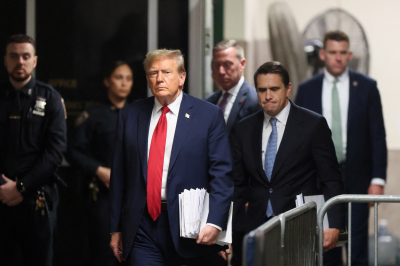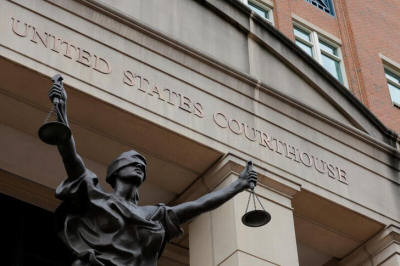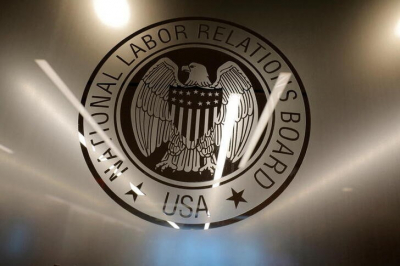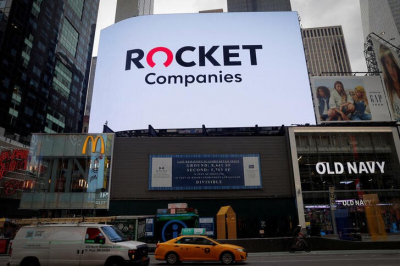
Legal Crossroads: US Supreme Court Case Posing Significant Implications for SEC Enforcement Actions
"High Stakes: U.S. Supreme Court Weighs SEC's Enforcement Authority, Paving the Way for Broader Implications"
In a pivotal legal battle, the U.S. Supreme Court recently deliberated whether the U.S. Securities and Exchange Commission (SEC) possesses the authority to pursue defendants within its in-house tribunal rather than the federal court. The repercussions of this case extend far beyond the SEC, potentially reshaping how various U.S. federal agencies enforce regulations. As the court's decision is anticipated by the end of June, here's a glimpse into ongoing cases awaiting this groundbreaking ruling.
One notable case involves certified public accountant and Marcum LLP partner Alan Markowitz, whom the SEC targeted in a February administrative action. The allegations centered around Markowitz's purported failure to adhere to auditing standards while overseeing investment company FTE Networks Inc. In response, Markowitz filed a lawsuit in Manhattan federal court, contending that the SEC lacks constitutional authority for in-house proceedings and asserting his right to a jury trial. With the SEC temporarily halting administrative actions pending the Supreme Court decision, the outcome could significantly influence Markowitz's case and others like it.
Another SEC in-house case involves former PricewaterhouseCoopers auditor Joshua Abrahams, facing a complaint over his review of financial statements for toy manufacturer Mattel Inc. The SEC accused Abrahams of professional standards lapses, potentially impacting his ability to engage with the agency. Like Markowitz, Abrahams awaits the Supreme Court's ruling as his administrative proceeding remains on hold.
Legal experts emphasize that the Supreme Court's decision on the SEC's enforcement powers extends beyond individual cases, carrying broader consequences for agencies pursuing internal enforcement claims. One such instance involves biotech company Illumina challenging a U.S. Federal Trade Commission order related to its acquisition of cancer diagnostic test maker Grail. The outcome of this case could set a precedent for agencies navigating internal enforcement landscapes.
As the legal landscape awaits the Supreme Court's verdict, the implications are poised to reach far and wide, guiding the future dynamics of regulatory enforcement across various sectors."
"Legal Battle Unfolds: Illumina Challenges FTC's Authority, Posing Broader Questions on Administrative Proceedings"
In a legal clash with far-reaching implications, San Diego-based Illumina is challenging the Federal Trade Commission's (FTC) authority, contending that Congress failed to provide the agency with a clear framework for deciding when to pursue cases through administrative proceedings rather than in U.S. courts. This argument underscores the broader debate over the "intelligible principle" guiding the FTC's choice of legal avenues for enforcement actions.
Illumina's dispute with the FTC revolves around an order mandating the company to divest from cancer diagnostic test maker Grail. The biotech firm's legal team asserts that the lack of a clear legislative directive leaves the FTC without a discernible standard for determining the appropriate forum for enforcement actions.
This critical challenge to the FTC's authority is currently in the hands of the New Orleans-based 5th U.S. Circuit Court of Appeals, where Illumina seeks to overturn the divestiture order. The outcome of this case carries implications not only for Illumina but also for the broader regulatory landscape, raising fundamental questions about the FTC's discretion in choosing between administrative proceedings and U.S. court litigation.
As the legal drama unfolds, the spotlight on the FTC's decision-making process and its alignment with legislative directives may set a precedent with lasting consequences for agencies navigating the intricate terrain of administrative enforcement. The resolution of Illumina's challenge awaits a judicial verdict that could reshape the dynamics of regulatory actions in the future."
"In conclusion, Illumina's challenge to the Federal Trade Commission's authority represents a pivotal moment in the ongoing debate over the agency's discretion in choosing between administrative proceedings and U.S. court litigation. The central argument questioning the clarity of Congress's directive sets the stage for potential broader implications on the FTC's decision-making process.
As the legal battle unfolds in the New Orleans-based 5th U.S. Circuit Court of Appeals, the outcome of Illumina's challenge could establish a precedent with far-reaching consequences for regulatory actions. Beyond the specific case at hand, the resolution may reshape the landscape of administrative enforcement, prompting a reevaluation of the FTC's autonomy in determining the appropriate forum for cases.
The forthcoming judicial verdict will not only impact Illumina's divestiture order but could also influence how regulatory agencies interpret and execute their enforcement powers. The broader regulatory and legal community awaits this decision as it carries the potential to redefine the boundaries of administrative proceedings and their alignment with legislative intent in the realm of regulatory enforcement."





